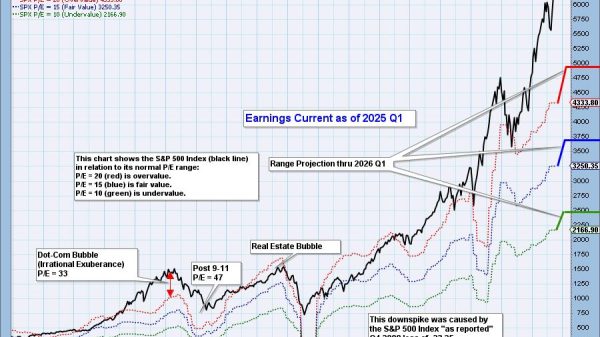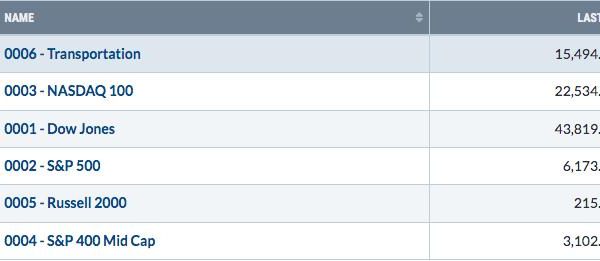Stock Market Outlook: Assessing Asia’s Economic Pulse
As the global economic landscape continues to evolve, investors are keeping a keen eye on the stock market outlook, gauging the pulse of economies across the globe. In this analysis, we delve into recent developments in Asia-Pacific markets, exploring the unexpected expansion of China’s manufacturing sector and the nuanced shifts in other regional economies.
Asia-Pacific Markets: A Mixed Bag
Asia-Pacific markets kicked off the week cautiously, diverging from Wall Street’s predominantly positive trajectory. Notably, China’s Caixin manufacturing purchasing managers’ index for November took centre stage, revealing an unexpected expansion in the sector. The Caixin PMI reading surged to 50.7, surpassing the October figure of 49.5 and defying a Reuters poll forecast of 49.8. This positive turn contrasts with official data indicating China’s manufacturing sector’s contraction for the second consecutive month.
In Australia, the S&P/ASX 200 experienced a marginal dip of 0.2%, ending a three-day winning streak. Meanwhile, South Korea’s Kospi witnessed a more substantial decline of 1.19%, leading to regional losses and closing at 2,505.01. The small-cap Kosdaq also felt the pressure, down 0.53% at 827.24. Japan’s Nikkei 225 ended the day with a 0.17% decrease at 33,431.51, although the Topix index defied the trend, closing up 0.32% at 2,382.52.
Hong Kong’s Hang Seng index took a 1.1% hit in the final hour of trading. China’s CSI 300 index dropped 0.38%, hitting its lowest level since Oct. 24. This regional dip contrasts with the U.S. markets, where the Dow Jones Industrial Average reached a new high for the year. Cooling inflation data and robust Salesforce earnings contributed to the benchmark’s best month since October 2022. While the S&P 500 added 0.4%, the Nasdaq Composite experienced a marginal dip of about 0.2% as investors secured profits in Big Tech stocks that fueled the November market resurgence.
India’s Resilience: A Glimmer in Asia’s Manufacturing Landscape
Despite the broader regional fluctuations, India’s manufacturing sector displayed resilience. According to private surveys by S&P Global, India’s manufacturing PMI rebounded to 56.0 in November, aligning with a forecast and surpassing October’s 55.5. Notably, easing price pressures emerged as a key factor behind this surge. S&P highlighted that, despite a rise in average purchasing costs, the inflation rate eased to the lowest in the current 40-month sequence of increases, remaining negligible by historical standards.
This upward swing in India’s manufacturing activity adds a positive note to the complex melody of Asia-Pacific markets. It underscores the diversity of economic dynamics within the region, with India managing to navigate challenges effectively, showcasing a robust manufacturing sector amid global uncertainties.
The Dance of Uncertainty: Stock Market Flotation and Predicting the Next Move
As investors navigate the ebb and flow of the market, discussions around stock market flotation gain prominence. The unexpected expansion of China’s manufacturing sector and the resilience of India’s economic indicators prompt investors to reassess their strategies. Amidst these deliberations, the spectre of a next stock market crash prediction looms in the background, reminding market participants of the inherent unpredictability of financial markets.
Determining the stock market bottom becomes crucial in these times of uncertainty. While Asia-Pacific markets experience fluctuations, global investors seek stability and attempt to identify opportune moments for investment. Whether it’s the soaring indices in the U.S. or the nuanced movements in Asian markets, predicting the bottom remains a challenge that captivates the minds of investors worldwide. The Hang Seng benchmark faced a notable drop of 1.25%, amounting to 212.58 points, closing at 16,830.30. The week’s performance hinted at a substantial weekly loss of 3.6%, marking its most significant downturn since mid-August. This decline reflects the prevailing concerns about the state of the economy. It adds a layer of uncertainty to the regional financial landscape.
Navigating the Intricate Dance of Asia-Pacific Markets
The recent twists and turns in Asia-Pacific markets offer a fascinating tableau for investors and analysts alike. The unexpected expansion of China’s manufacturing sector and India’s resilient performance underscore the dynamism within the region. As we contemplate the stock market outlook, it becomes evident that a nuanced understanding of regional dynamics is essential for making informed investment decisions.
The spectre of the next stock market crash prediction lingers, emphasising the need for caution and strategic planning. Despite the challenges, India’s manufacturing rebound showcases the potential for resilience amid global economic uncertainties. As the markets continue their dance of uncertainty, investors will closely watch for signals, attempting to decipher the ever-changing rhythm and identify the opportune moments to wade in or step back.
In this intricate dance, the importance of predicting the stock market bottom cannot be overstated. Investors must navigate these uncertain times with a blend of diligence, strategy, and adaptability. The global economic stage remains dynamic, and success in the financial markets requires a keen understanding of both the regional nuances and the broader, interconnected trends that shape our economic landscape.
The post Stock Market Outlook: Assessing Asia’s Economic Pulse appeared first on FinanceBrokerage.






















